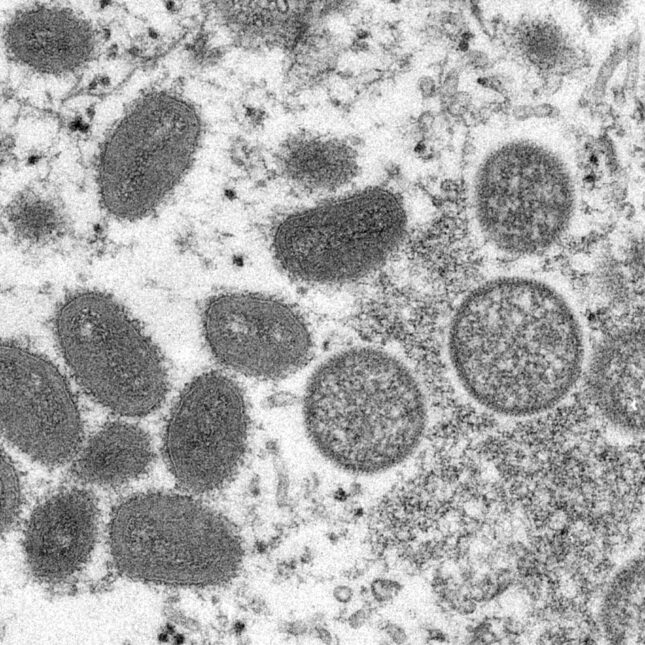By DR. JOYNICOLE MARTINEZ, Staff Writer

A rare disease called monkeypox, a much less severe cousin of smallpox, is spreading around the world into places it usually never touches. According to the World Health Organization (WHO), more than 250 cases have been reported in at least 16 countries including a confirmed US case in a man in Massachusetts, and the four presumed cases in men in New York, Florida and Utah.
Monkeypox is a virus endemic in parts of Central and West Africa. It is similar to but less severe than smallpox, which is caused by a related virus, according to the Centers for Disease Control and Prevention (CDC). Symptoms usually appear in six to 13 days but can take as long as three weeks after being exposed. While the virus has a long incubation period, patients are considered most infectious when they have a rash. They can last for two to four weeks, and cases are usually more severe in children.
Monkeypox usually begins with symptoms similar to the flu including fever, headache, muscle aches, chills, exhaustion and swollen lymph nodes. It then progresses to body rashes on the face, hands, feet, eyes, mouth or genitals that turn into raised bumps which then become blisters.
Though monkeypox can spread through respiratory droplets, the virus comes from infected lesions in the throat and mouth that can expel it into the air. But transmission from respiratory droplets requires prolonged face-to-face contact, according to the Centers for Disease Control (CDC).
Monkeypox is not a sexually transmitted disease, which is generally passed through semen or vaginal fluid, but it can be transmitted through sexual and intimate contact as well as through shared bedding.
In an interview with The Associated Press, Dr. David Heymann, who formerly headed WHO’s emergency department, explained the spread of the disease was sexual transmission among gay and bisexual men at two raves held in Spain and Belgium.
This is the first time that chains of transmission were reported in Europe without any direct links to Africa, according to the European Center for Disease Prevention and Control. The agency also said this year’s cases included the first that have been reported among men who have sex with men.
CDC official, Dr. John Brooks, stated anyone can contract monkeypox through close personal contact regardless of sexual orientation. However, Brooks said many of the people affected globally so far are men who identify as gay or bisexual. Though some groups have greater chance of exposure to monkeypox right now, the risk isn’t limited only to the gay and bisexual community, he cautioned.
The CDC says there is “no proven, safe treatment” for monkeypox but the Food and Drug Administration has approved the use of smallpox vaccines and antiviral treatments to control outbreaks.
The cases are spreading quickly, and the US is positioning its healthcare industry to respond by releasing monkeypox vaccine from the nation’s Strategic National Stockpile.
Dr. Jennifer McQuiston, deputy director of the Division of High Consequence Pathogens and Pathology within the CDC’s National Center for Emerging and Zoonotic Infectious Diseases said Monday she could “report that there has been a request for release of the Jynneos vaccine from the National Stockpile for some of the high-risk contacts of some of the early patients, so that is actively happening right now.”
In the United States, the two-dose Jynneos vaccine is licensed to prevent smallpox and specifically to prevent monkeypox. Right now, we have over 1,000 doses of that available, and we expect that level to ramp up very quickly in the coming weeks as the company provides more doses to us,” McQuiston said.
There is another smallpox vaccine licensed in the United States, ACAM2000, that could be used to prevent monkeypox, she said, and the country has more than 100 million doses.
“ACAM2000 is an older-generation smallpox vaccine that has some potential significant side effects with it. So a decision to use that widely would have to have some serious discussion behind it,” according to McQuiston. Overall, “we are hoping to maximize vaccine distribution to those that we know would benefit from it,” she said. “Those are people who’ve had contact with a known monkeypox patients, health care workers, very close personal contact, and those in particular who might be at high risk for severe disease.”
The United Nations said the outbreak is “a highly unusual event” and said the fact that cases are being seen in so many different countries suggests the disease may have been silently spreading for some time. The agency’s Europe director warned that as summer begins across the continent, mass gatherings, festivals and parties could accelerate the spread.
It’s important that this outbreak not cause stigma toward the LGBTQ community. The Joint United Nations Program on HIV/AIDS cautioned against reporting and commentaries using language and imagery that reinforce stereotypes and exacerbate stigma.
UNAIDS Deputy Executive Director Matthew Kavanagh said Monday, “experience shows that stigmatizing rhetoric can quickly disable evidence-based response by stoking cycles of fear, driving people away from health services, impeding efforts to identify cases, and encouraging ineffective, punitive measures. We appreciate the LGBTI community for having led the way on raising awareness — and we reiterate that this disease can affect anyone.”
